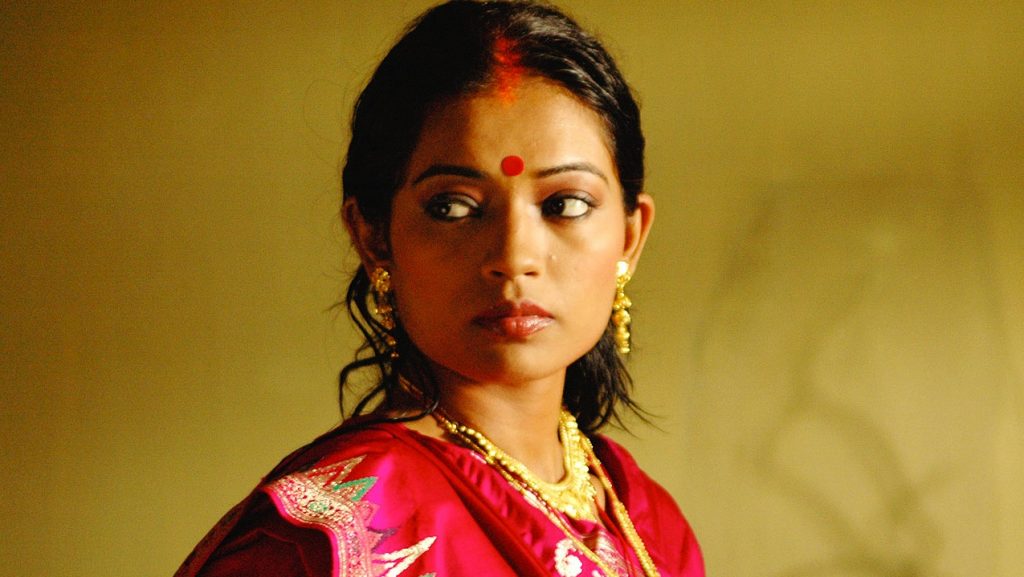Recently, it has been the content-driven, smaller budget films that have made a bigger splash than their bigger budget counterparts. Critically also, Udaan and Tere Bin Laden both outshone Lamhaa while Peepli [Live] has reported far healthier box office receipts than Lafangey Parindey. Antardwand should now hopefully be the next in line to strike a blow for lower budgeted, sensible cinema – it certainly deserves to. A fine film, looking at the phenomena of groom kidnapping in Bihar, the film marks a satisfying directorial debut for cinematographer and FTII alumnus, Sushil Rajpal.
Antardwand yet again proves that the driving force of a film is its script, script, script and content, content, content. Based on a true life incident that actually happened with director Rajpal’s friend in the 1980s, you can see and feel Rajpal’s personal touch in the film. The screenplay by Amitabh Varma is well knotted, the characters extremely well fleshed out and the director brilliantly captures the ambiance of small town and rural Bihar with fine attention to detail (the drunk man asleep with the old monk bottle on his stomach) and stays close to his characters giving them their moments of introspection. This greatly helps the viewer in going through their emotional and psychological journey with them and caring about what happens to them. The filmmaker deals with the issue with a sensitive, reined-in approach to his story telling and what’s more, appears sure of his cinematic craft.
In the film, Raghuveer (Raj Singh Chaudhury), who has just appeared for his Civil Services exams, is admonished by his father against marrying his pregnant girlfriend in Delhi. Distraught and defenseless, Raghuveer terminates his visit home in the interiors of Bihar and leaves for Delhi. But before he could get out of the village, he gets abducted by another headstrong and ambitious father of a girl (Akhilendra Mishra), wanting to have a potential IAS officer as his son-in-law. The boy is forcibly married off much against his and the girl’s (Swati Sen) own wishes. Once married, they are locked up in a room for days on end till they consummate their marriage and accept each other completely….
The masterstroke in the film is the way Rajpal, seamlessly, is able to incorporate the perspectives of both, the bride and groom, in this tale of a ‘marriage at gunpoint’. After all, such a marriage psychologically affects and scars both the parties involved. Normally, even seasoned filmmakers find it difficult to deal with more than one POV in a film but it has to be said that Rajpal pulls it off here. What’s more, the switch from the boy’s story, whom we have been following from the beginning, to the girl, is effortless and the script keeps the other narrative threads continuing so that one is still with the boy and rest of the events even as the girl slowly takes over the film.
Sure, there are the glitches. The song at the wedding appears a tad clumsy almost as if it was shot with lip sync, and then re-edited the way it is now as perhaps it was not working. The mother’s role needed more fleshing out and thought. If any one character suffers in the film, it is her. There are far too many flashbacks, sometimes over-emphasizing what the protagonists are going through, which we don’t really need to see as the filmmaker has already got us emotionally involved with his characters so we know what is going through their mind. For instance, the shots of the rape from the boy’s POV or a recap of the girl’s story before she makes her final decision do not really help the film and the end is not really convincing. The thread of the girl’s father taking legal action against the groom is also left hanging. And the scenes with the Delhi girlfriend look as if shot with time limitations.
The sincere performances of Raj Singh Chaudhury and, in particular, Swati Sen, an acting student from the FTII, further lift the film. Swati has to be commended in this, her actual debut film, even if her subsequent films like It’s Breaking News (2007) released earlier. She expertly captures every shade her character goes though and brings out her hidden inner strength perfectly, finally revolting against her father. Vinay Pathak, though looking too young for the role, and Jaya Bhattacharya add great support and while Akhilendra Mishra has his moments, he does go over the top in the climactic scenes. Sumukhi Pendse, however as mentioned, is by and large defeated by a weakly sketched role of the girl’s mother who silently suffers all the happenings with just the token scene at the end.
Technically, the film belies its low budget and special mention must be made of Malay Ray’s evocative cinematography with some extremely good use of the foreground and background in his compositions, and Manoj Sikka’s sound design. Aseem Sinha, by and large, maintains the pace of the film quite nicely even if the flow is a bit jerky at times and among the songs, Adhuri Kahani Meri is extremely well written and composed. However, the background score is adequate and little else.
All in all, a film made straight from the heart, Antardwand is an eye-opener and well worth a dekho!
Hindi, Drama, Color


